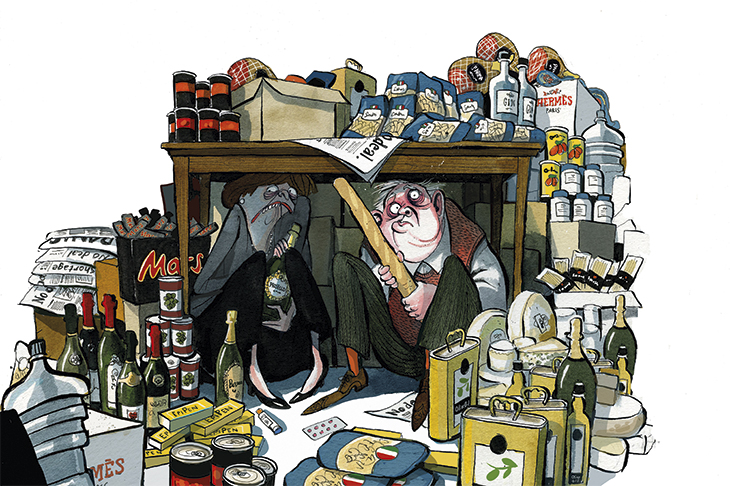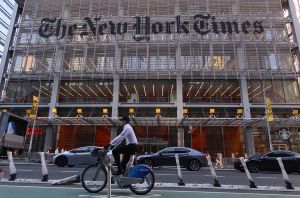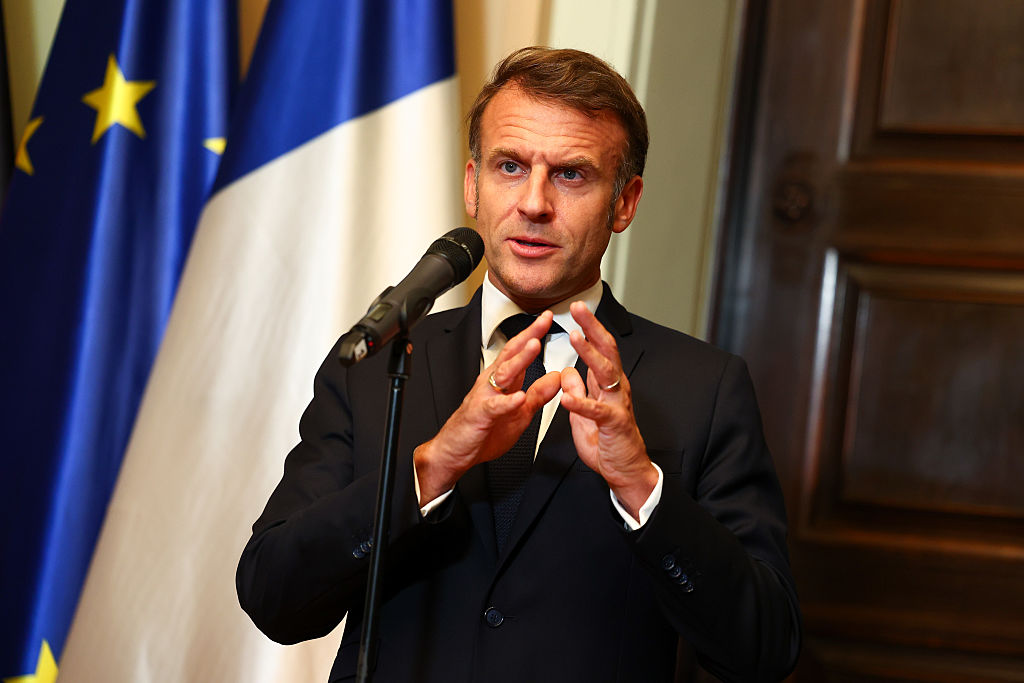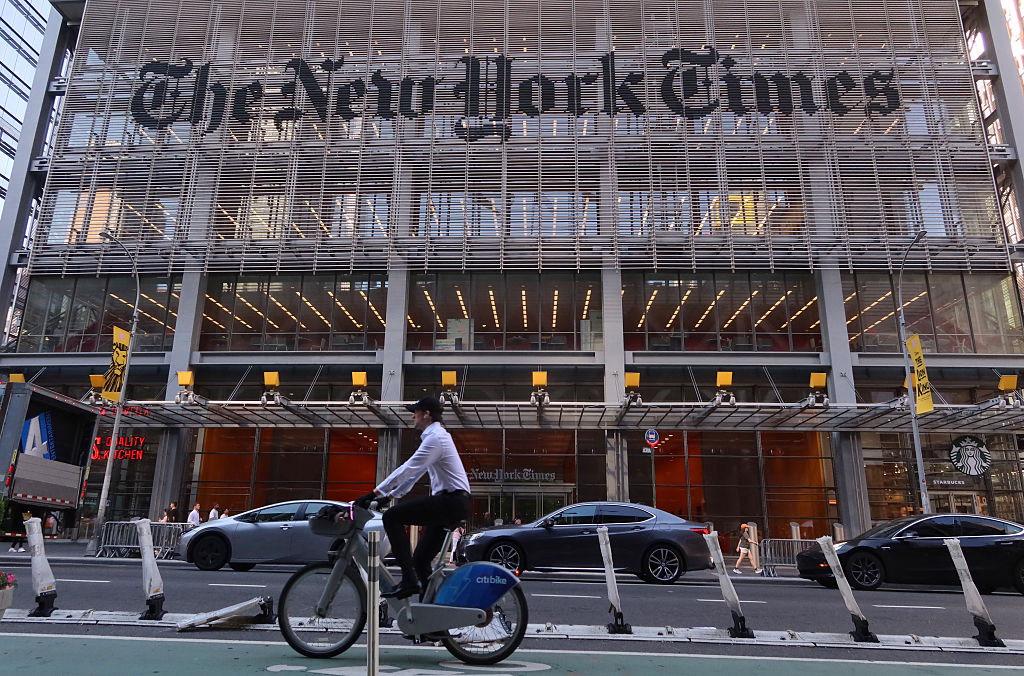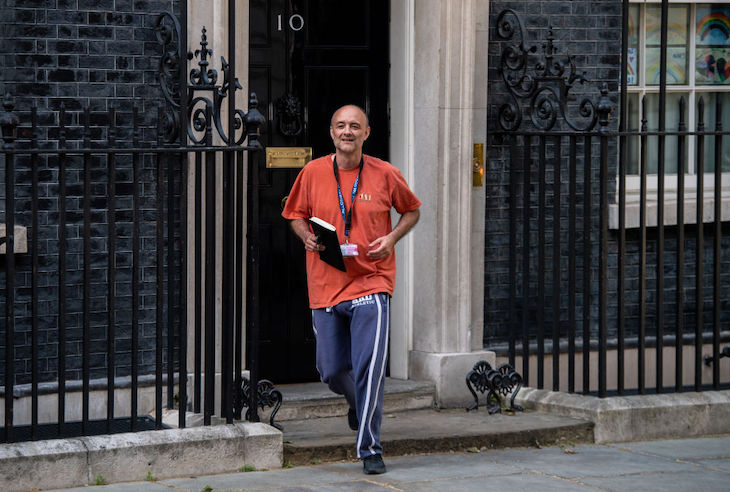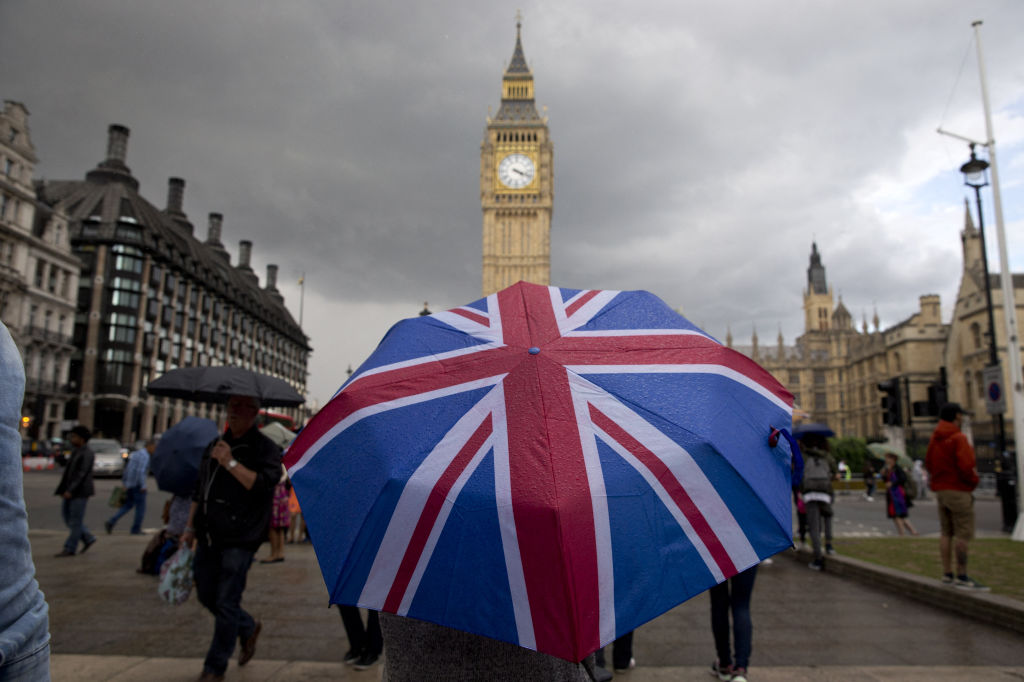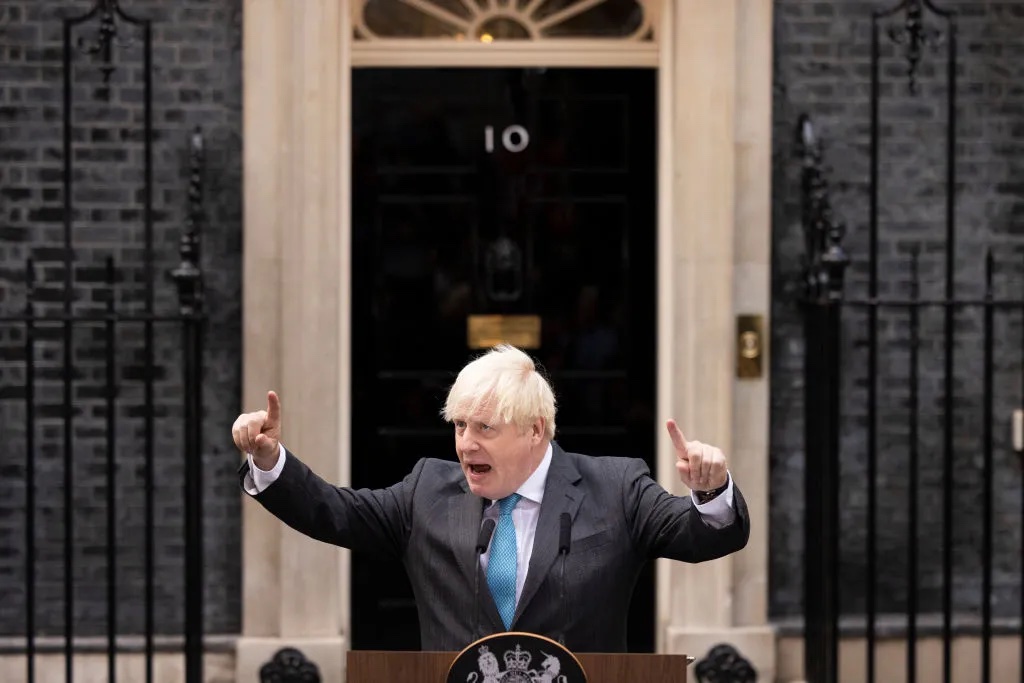Food shortages, diabetics going without insulin, outbreaks of salmonella and swine flu: a no-deal Brexit has become a dystopia of the imagination that gives even the Old Testament a run for its money. To lend it extra credence, the doomsayers are not muttering men with long white beards but business leaders and figures from respectable-sounding think-tanks.
Yet in just 11 weeks’ time, a no-deal Brexit could become a reality. Will we really be impoverished, hungry and living in fear of infectious diseases? Or is it just Project Fear, ratcheted up to a new level by those who see the clock ticking down and have become ever more desperate to persuade the public of the foolishness of its decision to vote for Brexit?
Some dismiss the predictions of chaos as mere scaremongering. Yet they are harder to ignore when you look at their provenance. The salmonella and swine flu warning, for example, came not from David Icke but from the normally sober London Port Health Authority — not a body that usually features in the rough and tumble of political debate. So just what is the truth about some of the most-quoted concerns?
Supermarket shelves will empty. Hospitals will run short of drugs
The risk to the NHS was made clear last month when Matt Hancock, the Health Secretary, said he had become ‘the world’s largest buyer of fridges’, as hospitals prepare to stockpile six weeks’ worth of medicines. He didn’t explain why such a large stockpile is needed, but it didn’t sound very encouraging. Drugs that have regulatory approval on March 28 will still be approved in Britain on March 30, so there should be no greater need for regulatory checks — although there could be traffic delays in delivering drugs. The NHS regularly has to deal with shortages of particular medicines: last autumn, for example, manufacturing difficulties caused a shortage of EpiPens. If such a shortage were to occur this spring, it would inevitably be blamed on Brexit. The same applies to a great many other things that could go wrong after March 29: no-deal Brexit would be held responsible.
What’s the case for stockpiling food? Much of our food does come from EU countries, and if there are extra customs checks, it might be harder to transport this food into Britain. It’s all very well saying we’d buy British — which we could for milk and potatoes — but a third of the food we consume is imported from the EU; overall only half of our food is sourced in the UK. The real problem could be with fresh vegetables (of which we import just over half) and fresh fruit, 84 percent of which is imported. Plenty of it is brought in by refrigerated lorries from southern Spain; serious delays could leave their cargos rotting.
That brings us to ingredients. Michael Gove, the Environment Secretary, has voiced concerns that two of a Mars Bar’s 20 ingredients are imported from the EU and that supplies could run out in weeks — news which might actually delight Public Health England. Will supplies really be interrupted, though? If the UK government is worried about this, it can wave lorries through and worry about paperwork later. But we have no control on the hold-ups these lorries might be subjected to on the way back to Europe (more of which below). Panic-buying is, in itself, a major risk and could empty the supermarket shelves regardless, just as filling stations rapidly ran out of fuel during the petrol protests in 2000, thanks to motorists filling up just in case.
Roads will be blocked by queues of lorries. The M20 will become a giant car park
According to the Port of Dover, which handles 2.6 million lorries a year, an extra two minutes’ delay to each lorry entering customs would cause 17-mile tailbacks along the M20. Yet a port strike at Calais in 2015 caused similar tailbacks, without mass food shortages. The Road Haulage Association says the proposed customs forms could take eight hours to fill in for a lorry packed with several different sorts of goods.
But should we believe it? HMRC says that much of the delay at ports could be avoided by clearing loads ahead of their arrival — as already happens with goods from outside the EU. It says it is training an additional 5,000 staff to make sure there is a ‘functioning’ border in place — although this would not be ‘an optimal situation’. Calais and the Belgian port of Zeebrugge have recently introduced electronic clearing systems for customs forms.
Jean-Marc Puissesseau, head of the Port of Calais, confirmed this week that, in the event of a no-deal Brexit, the port will not be stopping more lorries than it already does, so there will be no reason for any delays on the French side of the Channel when it comes to bringing goods into Britain.
As with so much in a no-deal Brexit, the real concern is political. President Emmanuel Macron may seek to make life difficult for cross-Channel traffic, especially if Britain attempts to exit the EU without paying the agreed £39 billion leaving bill. Under WTO rules, punitive delays are not allowed at borders. But might the French bend the rules? In the past, they have banned British beef when it suited them, in defiance of EU law. International trade rules might turn out to offer Britain scant protection.
The unknown factor is how motorists will behave in the event of a no-deal Brexit. If car drivers take fright and stay away from cross-Channel ports around the time of Brexit, traffic could end up flowing surprisingly well in the early days.
Brits will need visas to go on holiday
It costs $14 for an ESTA to visit the US and it lasts two years. A similar visa-free system has been proposed by the EU in the event of a no-deal Brexit. For €7, Brits would be granted the right to roam across the EU for up to three years and stay anywhere for 90 days without a visa. Passport-free travel between the UK and Ireland is guaranteed by laws that preceded our EU membership. Ordinary motorists are covered by the 1968 Vienna Convention on Road Traffic, which gives them the right to drive on the roads of foreign countries — so long as they don’t do so while inebriated or in contravention of other traffic laws.
The government has committed to staying within the European Health Insurance Card (EHIC) scheme after Brexit — just like Norway. In the event of no deal, however, the government believes individual agreements may need to be made with each country, which might not be completed by March 29.
The situation regarding pet passports is still unknown. The EU operates a Pet Travel Scheme for travelers from non-EU countries and much depends on whether it would consider Britain a ‘listed’ or ‘-unlisted’ country after Brexit. If the former, nothing changes. If the latter, pets might have to spend four months in quarantine. As with much else, it all depends on how hard the EU wants to make life for the British.
There would be some compensation: the restoration of duty-free shopping. However, the government could impose limits on how much alcohol and tobacco travelers could bring back into Britain. The EU says it will limit the quantities that can be taken from Britain to the EU. One positive outcome for UK shoppers is that they would be able to reclaim the VAT they had paid on goods bought in EU countries by filling in a form when they get home.
Prices will rise; the economy will suffer as just-in-time exports and imports are blocked
Until two years ago, the word ‘tariff’ rarely featured in pub debates. Now, even the abbreviation WTO (World Trade Organisation) is common currency. Under WTO rules, the UK would not have to impose a tariff on EU cars or food, but realistically it might echo EU tariffs for fear of exposing UK farmers to an influx of cheap imports. EU tariffs currently average 2.8 percent for non-farm products but for many goods, it’s higher: 10 percent for cars, 16 percent for animal products and almost 40 percent for dairy goods. So the price of Brie and BMWs might shoot up. Tariffs are, like all forms of tax, a source of revenue so the government could lower VAT to compensate for higher prices in the shops. Oxford Economics estimates that, overall, no deal would increase prices by 2 percent for about a year. Annoying, certainly, but hardly a cost surge.
Planes won’t be able to take off
Agreement has already been reached on flights between the UK and EU countries: they would not be affected for at least 12 months. There is no agreement on UK airlines flying between EU cities, but this is easily circumvented: easyJet has recently set up a separate Austrian-based company to enable it to continue to fly throughout the EU. Ryanair is based in Ireland so won’t be affected (although you would never think so from the threats chief executive Michael O’Leary has made to ground planes in the event of Brexit).
As for passengers, the EU has said that UK passengers traveling to, say, Amsterdam airport for a connecting flight to the US will not face extra security checks. What happens after March 30 2020 isn’t clear, although there is little reason to see why the UK shouldn’t be allowed to join the European Common Aviation Area as an independent member state, like Norway. Again, this depends on goodwill.
Expats will have to return home
The EU has said that the 785,000 UK nationals who are legally resident in other EU countries on March 29 2019 will retain the right to live and work there so long as they obtain a residence permit. Their rights are also protected under the Vienna Convention, which would also prevent the UK government deporting EU nationals. They are being asked to pay £65 each to renew their residency rights under the UK Settlement Scheme (so much for a post-Brexit UK being much lighter on regulation). Being resident in one EU state won’t give a UK national the automatic right to go and live in another EU state, although they will be free to visit other EU countries for a period of three months. The British government has introduced the Healthcare (International Arrangements) Bill to guarantee continuing healthcare arrangements for UK expats even in the event of no deal.
The economy will collapse
So dire have the warnings over Brexit been over the past couple of years that recent economic forecasts look relatively mild by comparison. The National Institute of Economic and Social Research (NIESR) sees economic growth of 0.3 percent in 2019 in the event of no deal, a whole point less that it otherwise expects. Oxford Economics says economic growth will fall to zero after no deal, Capital Economics envisages a 0.2 percent contraction and Fathom Consulting 0.8 percent. Credit Suisse is one of the most pessimistic, imagining a fall of 1 percent or 2 percent in the economy. To put this in context: the crash of 2007 saw the economy shrink by 6.3 percent. All these forecasts need to be treated with extreme caution given how wrong forecasts made before the referendum proved to be. Oxford Economics envisages a 10 percent fall in sterling (it fell 15 per cent after the referendum). A currency drop would, as we saw last time, bring mixed economic results (higher inflation, but also higher exports and investment). And how reliable are such forecasts? In May 2016 the Treasury said unemployment would rise by at least 500,000 within two years of a Leave vote. In the event, the economy grew and unemployment fell to its lowest level in 45 years.
The biggest problems could, of course, turn out to be ones that nobody has yet thought of. The magazine paper you are holding, for example, was imported and tends not to be stockpiled by our printers. After Brexit, might it arrive as quickly as it does now? To say ‘There is no reason why it shouldn’t’ is not the same as saying ‘It will’. No one can be sure. Panic buying, bureaucratic breakdowns, logjams in other parts of the supply chain: nothing can be ruled out.
What we can’t know are the political implications. Chaos would be blamed on the Tories and might prove to be the catalyst Jeremy Corbyn needs in order to form a left-wing government. On the other hand, Corbyn — a lifelong Brexiteer until he was presented with the chance to campaign for Brexit in a referendum — might be turned on by his own party.
The prospect of no deal, with all its uncertainties, will be seen by some as a crazy risk that should on no account be undertaken. Others might conclude that the risk is manageable and a few months’ disruption is a price worth paying for a clean break with the EU. Talks on a UK-EU free trade deal could, of course, begin at any time but without a ticking clock.
At present, most MPs would rather not see what no-deal Brexit might look like. But unless they can agree on an alternative, they may be about to find out.
This article was originally published in The Spectator magazine.



